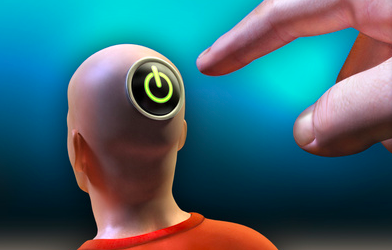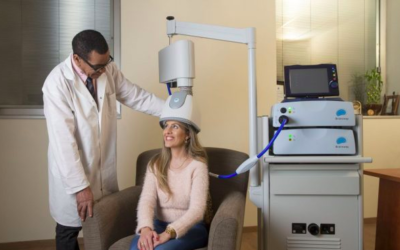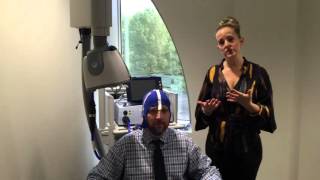See Our Recent Mental Health Articles
Reboot the brain for depression
Stacey Colino discusses the increasing use of transcranial magnetic stimulation (TMS) for a variety of disorders! https://health.usnews.com/health-care/patient-advice/articles/2017-10-11/rebooting-the-brain-with-transcranial-magnetic-stimulation For many, placing your...
Treatment for depression and addiction
Israeli medtech firm aims to tackle depression, opioid use with noninvasive brain stimulation About 4.5 million Americans have treatment resistant depression. Meaning the first 2+ rounds of medication management and therapy have not been sufficiently helpful. Per the...
A game changer for OCD?!
This is the first FDA-cleared treatment for obsessive compulsive disorder in a decade. OCD used to be jokingly called “Death Valley” as it is known that long periods of time tend to pass before more treatments are offered and OCD is notorious for how stubborn the...
Dr. Byrne does a demonstration of deep TMS
Dr. Jennie Byrne of Cognitive Psychiatry of Chapel Hill does a demonstration and explanation of TMS. Deep TMS is a treatment for treatment resistant depression. Generally a patient starts with an appointment for a consultation with a physician to talk about the...
TMS in the veteran population!
According to the linked article, at the Hampton Veternas Affairs Medical Center, Dr. Kenneth Miller is investigating if transcranial magnetic stimulation can be used to treat depression that failed to respond to conventional methods. Dr. Miller performed a...
New Westboro clinic zaps depression with magnetic pulses
https://www.telegram.com/news/20171217/new-westboro-clinic-treats-depression-with-magnetic-pulses This is a story of Reed Butler, someone who has made a living as a rhythm and blues musician. Unfortunately, like many, he endured several trials of antidepressants. He’d...
See More of Our Blog Articles
- This is Your Brain on Magnets
- What is Ketamine Therapy?
- Wellbutrin and Zoloft Together -When the Meds Aren’t Working
- How to Heal After Being Cheated On
- How Depression Affects Sleep
- Attachment Styles: Moving from Anxious to Secure
- A Glimpse into What Manic Depression Feels Like: Symptoms of this Misunderstood Disorder
- How Does TMS Work?
- How To Date Yourself
- How To Come to Terms With the End of a Friendship
- The Loneliness Epidemic
- Nail Biting
- Optimize the Mental Health Benefits of Having a Pet!
- Therapy and Psychiatric Care in Parenting
- Emotional Contagion
- Psychiatrists and Therapists: What are the first things you notice about clients?
- Signs It Is Going Well or Not With Your Therapist
- History of TMS for Depression
- Neuroscience of Depression and Treatment
- Orange Peel Theory And Healthy Relationships
- Deep TMS Success Stories
- Why is the Dorsolatereral Prefrontal Cortex (DLPFC) the Favorite Region to Stimulate?
- How Do Neurotransmitters Affect Depression?
- Existential Crisis
- Jealousy
- Under the Depression Helmet
- Interventional Psychiatry for Anxiety at New Frontiers Psychiatry in Milwaukee
- When to Take Seasonal Affective Disorder Seriously: A Look at TMS for SAD
- How Magnets are Treating Depression at a High Success Rate
- “I have so much hope”: How Deep Transcranial Magnetic Stimulation Changed One Woman’s Life
- Three Reasons it’s Worth it to Consider TMS as an Alternative Treatment to Depression
- Change Your Brain
- Deep TMS Helped Andrew
- FAQs About Transcranial Magnetic Stimulation
- The Low Down on Esketamine
- TMS: Know Your Options!
- Simple Ways to Help Your Mental Health
- Being Proactive During TMS Treatment
- Misconceptions about Depression Treatment
- Losing a Loved One
- Depression and Fatigue
- Is TMS Right for You?
- Do You Know All Your Options?
- Wiring of the Brain
- Get the Most Out of Your TMS!
- Oliver’s Story
- Take Care of Your Brain
- Can Magnets Heal the Heart?
- From Depression to Remission
- Treatment for Depression and Addiction
- TMS in the Veteran Population!




